 A guest column by crime author Stav Sherez — Recently, I wrote a blog listing the top 10 crime novels you’ve probably never heard of and the inclusion of Glen Duncan’s Love Remains made me realise that some of my favourite ‘literary’ novels are actually crime novels in disguise. The following were originally marketed as literary novels but contain all the ingredients, tropes and page-turning fury of the best crime books. This is where crime and literary fiction meet – a headlong collision that’s produced, for me, some of the best novels in any genre of the last 60 years.
A guest column by crime author Stav Sherez — Recently, I wrote a blog listing the top 10 crime novels you’ve probably never heard of and the inclusion of Glen Duncan’s Love Remains made me realise that some of my favourite ‘literary’ novels are actually crime novels in disguise. The following were originally marketed as literary novels but contain all the ingredients, tropes and page-turning fury of the best crime books. This is where crime and literary fiction meet – a headlong collision that’s produced, for me, some of the best novels in any genre of the last 60 years.
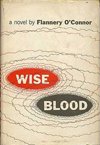 Wise Blood by Flannery O’Connor (1952)
Wise Blood by Flannery O’Connor (1952)
They called it Southern Gothic but we crime readers know it as pure hot noir. Hazel Motes returns from the army to find his family home abandoned. He drifts around the South, meets a man who introduces him to a strange spirituality, and decides to found his own anti-God ministry. A dark evocation of guilt and gullibility, WiseBlood is a stately, beautifully written and somewhat bonkers novel with one of the darkest endings ever, pre-figuring Psycho.
Buy now on Amazon
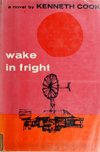 Wake in Fright by Kenneth Cook (1961)
Wake in Fright by Kenneth Cook (1961)
Peter Grant is working as a teacher at an isolated school in the Australian Outback. In a nearby town, waiting for his train to Sydney, he stops at a pub and gets involved in a game of chance. He loses all his money and is stuck there for the summer. He’s befriended by a group of locals. They force him to drink massive quantities of alcohol before taking him on a wild night-time Kangaroo hunt. Things only get worse from there. Cook takes the noir tropes of Cain and Thompson and reconfigures them in a new and striking setting. Australia has never seemed so terrifying. PulpCurry reviewed the book’s release on Kindle here.
Buy now on Amazon
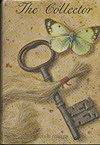 The Collector by John Fowles (1963)
The Collector by John Fowles (1963)
Fowles’ first book provides the DNA for all subsequent serial killer novels from Red Dragon to Along Came A Spider. A man stalks a female art student. He kidnaps her and imprisons her in his specially-constructed basement. What follows is one of the best sparring matches in literature as she slowly turns the tables on her captor. A stunningly nihilistic ending too.
Buy now on Amazon
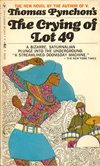 The Crying of Lot 49 by Thomas Pynchon (1966)
The Crying of Lot 49 by Thomas Pynchon (1966)
Pynchon uses various genre characteristics in all his novels. 2009’s Inherent Vice might have been the more obvious choice here, a recreation of late-60 Venice Beach seen through the stoned Chandler eyes of its protagonist, PI Doc Sportello. But it’s Lot 49 where Pynchon first plays with the detective novel. Society hostess Oedipa Maas’ life is thrown into turmoil when she’s made executrix of a former lover’s will. Trying to fulfill her duties transforms her into a detective, uncovering a hidden society existing between the cracks of the America she thought she knew. Like most great writers, Pynchon realises we are all detectives searching for the meaning of our own realities.
Buy now on Amazon
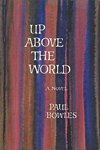 Up Above the World by Paul Bowles (1966)
Up Above the World by Paul Bowles (1966)
Bowles’ final novel is a razor-chilled burst of paranoia and marital hell. A bickering couple, steeped in ennui and resentment (based on the author and his wife, novelist Jane Bowles), arrive in South America. They meet a man who invites them to his villa. Once there, the man manipulates and toys with them, feeding them psychotropic drugs and teasing apart the fractures in their marriage. Tourist noir in extremis. Ian McEwan would take this plot and re-write it for The Company of Strangers.
Buy now on Amazon
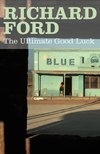 The Ultimate Good Luck by Richard Ford (1981)
The Ultimate Good Luck by Richard Ford (1981)
Ford’s recent book, Canada, began like a crime novel, its opening paragraph alluding to murder and betrayal, but his sophomore effort was pure Gonzo noir, an unholy cross between Malcolm Lowry and Ernest Hemingway. Your best friend is arrested and imprisoned in Mexico. What do you do? Go down and hatch a plot to break him out, of course. Inevitably, trouble ensues. A book about the decisions we make and the ones we don’t.
Buy now on Amazon
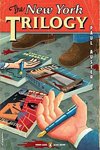 The New York Trilogy by Paul Auster (1986)
The New York Trilogy by Paul Auster (1986)
Auster’s first work of published fiction takes the private eye novel and turns it on its head. A man answers a phone. The caller asks to speak to a Paul Auster. The man hangs up the phone but when it rings again he pretends to be Auster, a private detective, and takes on a case which drives him to madness and destitution. A vertiginous labyrinth of clues and absences, the New York Trilogy effortlessly manages to cross Beckett and Borges with Chandler and Hammett.
Buy now on Amazon
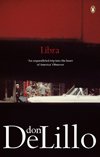 Libra by Don DeLillo (1988)
Libra by Don DeLillo (1988)
James Ellroy was blown away by DeLillo’s retelling of the JFK assassination as conspiracy theory and personal history. So much so that he wrote American Tabloid, taking DeLillo’s central premise and turbocharging it with machismo and speed. DeLillo is more cerebral, probing currents of history and desire in shimmering sentences. A book about conspiracy as the necessary structural force that keeps the chaos of the world at bay.
Buy now on Amazon
 Cherry by Matt Thorne (2005)
Cherry by Matt Thorne (2005)
A schoolteacher at a loose end during the summer holidays is the set-up for this slice of elegant noir. Steve is lonely and bored. When a man knocks on his door and asks him for the attributes of his perfect woman, Steve complies, thinking his caller mad. When the perfect woman appears at his door a couple of days later, events take a weird and deliciously dark turn. A sexy, sophisticated noir told in precise chilling sentences, as much James M Cain as John Cheever.
Buy now on Amazon
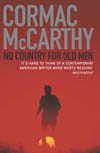 No Country For Old Men by Cormac McCarthy (2005)
No Country For Old Men by Cormac McCarthy (2005)
McCarthy had already written a stark dark serial killer novel in 1973’s Child of God, but with NCFOM he attacked the crime novel head-on. The ingredients are pure noir: a cache of drugs and money abandoned in the desert, a good man down on his luck, a remorseless wraith-like killer and the wide howling spaces of the American West. McCarthy ratchets up the tension as the book heads towards its inexorable climax. A stunning thriller that’s also a meditation on how America’s sense of itself and its values fundamentally changed in the years between World War II and Vietnam.
Buy now on Amazon
Stav Sherez is the author of Eleven Days and A Dark Redemption. To follow him on Twitter click here. A big thank-you goes out to Stav for this contribution.







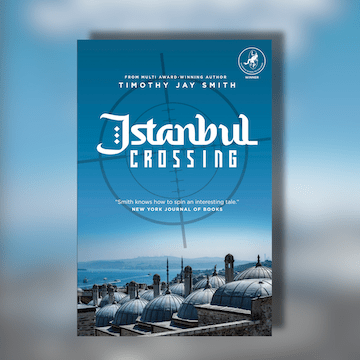
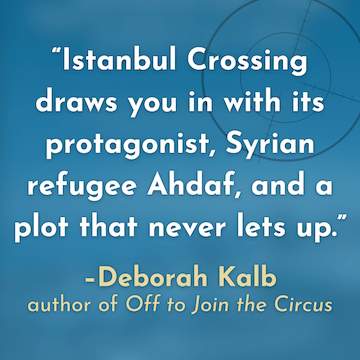
Great list, thanks Stav. Another really good one that falls into this category is The Secret History by Donna Tartt.
Wonder what other readers think – what would your list include?
Thanks! Secret History was on the short-list for this one but ended up being dropped as I guess most people know about it. But certainly most people reading it didn’t realise they were reading a crime novel.
Interesting list. Forgot all about the Collector so added it my reading list. Endorse view on NCFOM.If you’ve seen the film you might be pleasantly surprised to find the Coens’ shot it almost line by line including the downbeat ending. A real masterpiece. I wish I could say the same for Auster which I found a triumph of style over substance and not worthy of the uncritical acclaim: no doubt from others who find Crime slumming it!
Thanks for reading and commenting, John. I totally agree about the film – thought it one of the best literary adaptations ever. Have you tried Auster’s Moon Palace? That one is all about the story.
I would have labelled “The Collector” as a crime novel, but definitely not most of the others!
Thanks for reading and commenting! Collector is certainly the most straight crime but at the time I don’t think it was considered that.
Very good list. Well done. I would include ‘Sanctuary’ by William Faulkner, ‘The Quiet American’ by Graham Greene, ‘The Secret Agent’ by Joseph Conrad, ‘Native Speaker’ by Chiang Rae Lee, ‘Gun With Occasional Music’ and ‘Motherless Brooklyn’ by Jonathan Lethem. The last one has one of the most interesting and well-realized characters in crime fiction, a detective with Turette’s Syndrome. If I’m allowed to push the envelope, I might add ‘The Curious Incident of the Dog in the Nighttime’. The ‘detective’ being a 15-year old with Asperger’s Syndrome. It was written by Mark Haddon and published in 2003.
With high quality writing and intelligent plotting, the line becomes blurred. What are some of Ian McEwan’s novels, if not crime fiction? Was everything George Simenon write crime fiction, or were his ‘Romans Dur’ literary where only the Maigret books were crime? Graham Greene labeled some of his novels (Brighton Rock?) as ‘entertainment’ as if his more high-brow work wasn’t supposed to entertain.
Many thanks again for the list. For one thing it drew my attention to your work.
Thanks for your comments and yes, there are so many books that could have gone in here. Great list and I agree with most of your choices – Faulkner’s Light in August’s got to be one of the first serial killer novels! As you go further back in time, the genre lines become more and more muddied. Strict classification is more of a modern thing. Thanks again for reading and commenting, Ruhi!
Up Above the World stunned me as a kid. For McCarthy, to me there’s no substitute for Blood Meridian warts and all. And O’Connor is so intense that she’s upsetting for me to read — I have to be in the mood but jeez what a ride!!!
Oh, man….Blood Merdian is my joint fave novel! The best written sentences ever! I agree, one has to be in the mood for O Connor and for some of these but when you are there’s nothing better…..
Oh, man….Blood Meridian is my joint fave novel! The best written sentences ever! I agree, one has to be in the mood for O Connor and for some of these but when you are there’s nothing better…..
Blood Meridian is definitely among my top 5 favorite novels. Brilliantly disturbing and threaded with potent symbolism, McCarthy’s voice is incomparable to any author I’ve read. No Country for Old Men is also a masterpiece, although I tend to think it leans toward the horror rather than crime genre. Then again, you can’t readily categorize McCarthy; he’s one of a kind.
Please can anyone post links to electronic versions of any of the titles listed by Stav. Thanks
There’s a link to the Kindle version underneath most, if not all, of the entries.